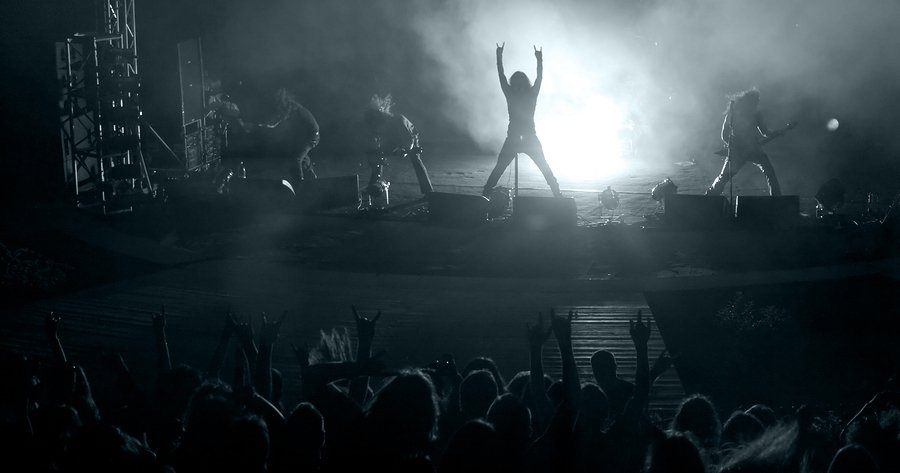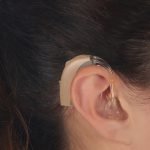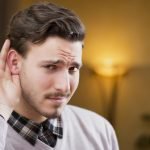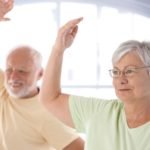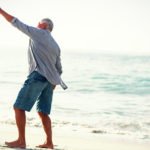As the warmer weather arrives, so do more opportunities for entertainment. If you enjoy live music performances, you may have already purchased tickets to see some of your favorite bands playing at local venues or even dedicated a weekend to attending an outdoor music festival. But new research suggests that along with those tickets, you might want to buy a pair of earplugs, at least if you value your sense of hearing.
The study, which was conducted at the University Medical Center Utrecht in the Netherlands, found that wearing earplugs can protect you from hearing loss related to exposure to loud music.1 Ramakers, Geerte G.J.; et al. “Effectiveness of Earplugs in Preventing Recreational Noise-Induced Hearing Loss.” JAMA Otolaryngology – Head & Neck Surgery. 7 April 2016. Accessed 13 April 2016. http://archotol.jamanetwork.com/article.aspx?articleid=2507069 The subjects were 51 men and women in attendance at a four-and-a-half hour outdoor music festival in Amsterdam. They had an average age of 27.
The scientists assessed each participant’s hearing prior to the beginning of the festival, then randomly divided them into two groups. One group was provided with earplugs and told to wear them for the entire festival, and the other group did not wear earplugs. In addition, the volunteers were all advised against excessive drug and alcohol use during the event. A measurement was taken of the sound pressure level at the festival and found that the time-averaged reading was 100 dBA (adjusted decibels), which is considerably above the maximum safe level of exposure for several hours of time. To protect our hearing, according to the National Institute for Occupational Safety and Health, maximum exposure at 85 dBA is eight hours. However, when levels reach 110 dBA, maximum exposure time is just one minute and 29 seconds before damage begins.
It turns out that the earplugs made a considerable difference over the time span of four-and-a-half hours. When the subjects’ hearing was once again evaluated after the show, only eight percent of the group wearing earplugs experienced hearing loss. In comparison, a whopping 42 percent of the group without earplugs showed signs of hearing loss. And just 12 percent of the volunteers wearing earplugs reported hearing a ringing in their ears after the festival, versus 40 percent of those not wearing earplugs. This ringing is known as tinnitus, which is a symptom of ear injury or hearing loss.
While this study was extremely small in size and doesn’t give us information about whether the hearing loss that took place was short-term or had permanent effects, the results do correlate with those of earlier research which found that even for those of us who do not spend our days surrounded by loud machinery, noise exposure can take its toll. For example, a 1997 study at the University of Michigan in Ann Arbor on hearing protection in industrial settings showed that the wearing of noise reducing devices can help workers avoid job-related hearing loss.2 Lusk, Sally L. “Noise Exposures: Effects on Hearing and Prevention of Noise Induced Hearing Loss.” AAOHN Journal. August 1997. Accessed 14 April 2016. http://search.proquest.com/openview/ea7a4d7001cf8cc979572f8bc90b2b30/1
Hearing loss has increased markedly among children and teenagers, mainly because of more frequent exposure to recreational noise. In fact, a related 2016 study at the University Medical Center Utrecht by several of the same scientists analyzed existing research on the use of earplugs at concert venues and determined that wearing earplugs is an effective method of reducing postconcert hearing problems.3 Kraaijenga, VJ. “The Effect of Earplugs in Preventing Hearing Loss From Recreational Noise Exposure: A Systematic Review.” JAMA Otolaryngology – Head & Neck Surgery. 3 March 2016. Accessed 14 April 2016. http://www.ncbi.nlm.nih.gov/pubmed/26940158
Think you have nothing to worry about if you have no interest in seeing the rock bands coming to town? Think again. At 110 dBA, a symphony concert is every bit as detrimental to your hearing as those electric guitars. And plenty of the noise around us all day long adds up to bad news for our hearing. A baby crying is 110 dBA; both your blender and vacuum cleaner can hit 80 to 90 dBA; and your hair dryer may be up to 95 dBA. Stuck in traffic? A car horn is 110 dBA. Taking in a football game at the stadium is 117 dBA. And if you enjoy an evening at the stock car races, you’ll have a 130 dBA to deal with.
In other words, we are literally surrounded by tons of noise, and the damage it does over time can be significant. Approximately 25 percent of U.S. residents between the ages of 55 and 64 have some degree of hearing loss, and that number nearly doubles in those older than 65. And most forms of hearing loss cannot be reversed. To complicate matters further, a 2011 study at Johns Hopkins University in Baltimore, Maryland showed that the worse a person’s untreated hearing impairment is, the greater their risk of developing dementia.4 Lin, Frank R.; et al. “Hearing Loss and Incident Dementia.” JAMA Neurology. February 2011. Accessed 14 April 2016. http://archneur.jamanetwork.com/article.aspx?articleid=802291
Therefore, it’s in all of our best interests to keep the noise levels to a minimum if we can. That means keeping the television and music at lower volumes and avoiding prolonged exposure to anything loud. Buying earplugs or a pair of hearing protector earmuffs5 http://www.amazon.com/s/ref=nb_sb_noss?url=srs%3D8110224011%26search-alias%3Dspecialty-aps&field-keywords=hearing+protectors certainly couldn’t hurt either, particularly if you are going to be spending a longer period of time in a noisy environment. You might even find that you are a lot more comfortable when you’re wearing them.
References
| ↑1 | Ramakers, Geerte G.J.; et al. “Effectiveness of Earplugs in Preventing Recreational Noise-Induced Hearing Loss.” JAMA Otolaryngology – Head & Neck Surgery. 7 April 2016. Accessed 13 April 2016. http://archotol.jamanetwork.com/article.aspx?articleid=2507069 |
|---|---|
| ↑2 | Lusk, Sally L. “Noise Exposures: Effects on Hearing and Prevention of Noise Induced Hearing Loss.” AAOHN Journal. August 1997. Accessed 14 April 2016. http://search.proquest.com/openview/ea7a4d7001cf8cc979572f8bc90b2b30/1 |
| ↑3 | Kraaijenga, VJ. “The Effect of Earplugs in Preventing Hearing Loss From Recreational Noise Exposure: A Systematic Review.” JAMA Otolaryngology – Head & Neck Surgery. 3 March 2016. Accessed 14 April 2016. http://www.ncbi.nlm.nih.gov/pubmed/26940158 |
| ↑4 | Lin, Frank R.; et al. “Hearing Loss and Incident Dementia.” JAMA Neurology. February 2011. Accessed 14 April 2016. http://archneur.jamanetwork.com/article.aspx?articleid=802291 |
| ↑5 | http://www.amazon.com/s/ref=nb_sb_noss?url=srs%3D8110224011%26search-alias%3Dspecialty-aps&field-keywords=hearing+protectors |

